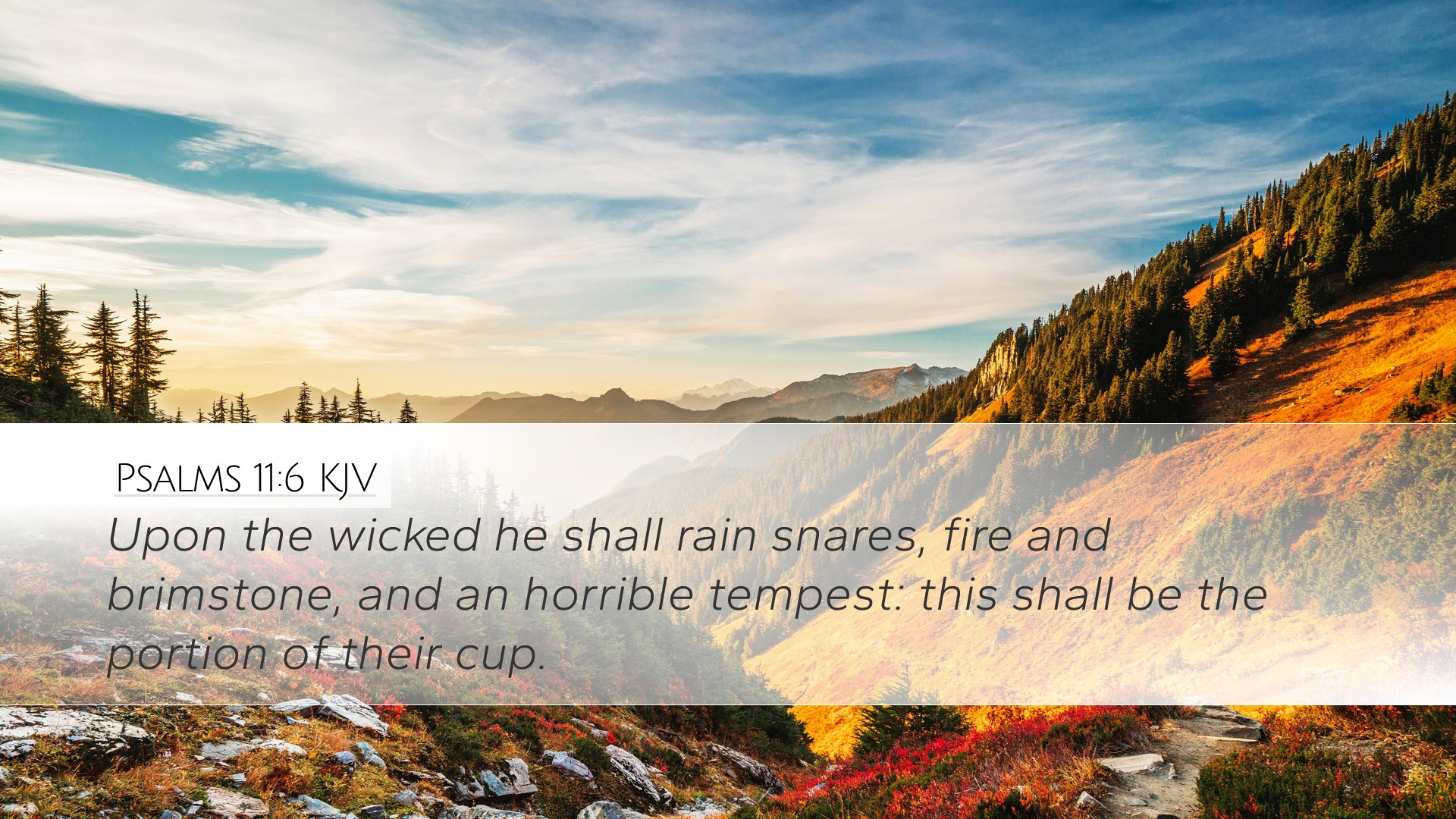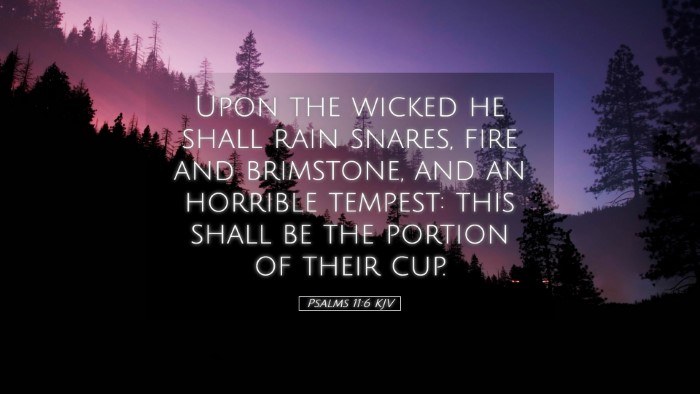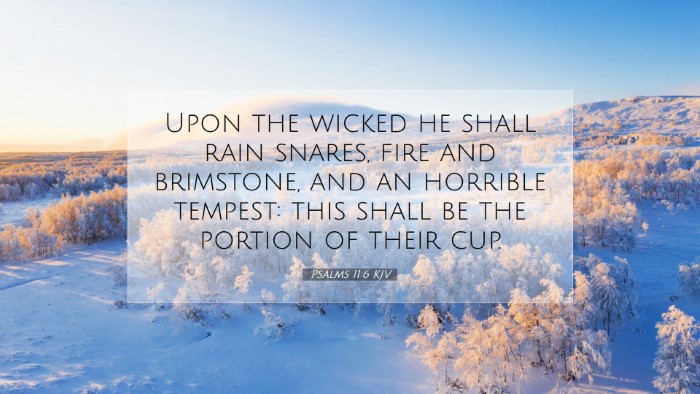Commentary on Psalms 11:6
Bible Verse: "Upon the wicked he shall rain snares, fire and brimstone, and an horrible tempest: this shall be the portion of their cup."
Introduction
The psalmist David boldly expresses profound truths in Psalm 11, especially in verse 6, which serves as a stark reminder of God's righteous judgment against wickedness. This commentary synthesizes insights from respected public domain commentaries, providing an in-depth understanding for pastors, students, theologians, and Bible scholars.
Contextual Background
Psalm 11 is often seen as a response to David's circumstances during a time of oppression and threats. The faithful believer finds refuge in the Lord amidst turbulence and societal decay. This verse highlights the contrasting fate of the wicked versus the righteous, reinforcing God's sovereignty and justice.
Verse Breakdown
"Upon the wicked he shall rain snares, fire and brimstone, and a horrible tempest:"
- Divine Justice: The phrase "rain snares" suggests an unexpected and overwhelming onset of judgment against the wicked. Matthew Henry emphasizes that God's condemnation will come with the same spontaneity as a downpour, catching the ungodly unprepared.
- Elements of Judgment: The imagery of "fire and brimstone" evokes biblical references to divine retribution, reminiscent of the fate of Sodom and Gomorrah. Adam Clarke notes the symbolic use of these elements to signify purification through destruction, marking God's judgment as both purging and punishing.
- Horrible Tempest: The term "tempest" suggests chaos and uncontrollable forces. Albert Barnes argues that it symbolizes the turmoil that ensues when God's wrath is unleashed—further validating the severity with which He deals with sin.
The Portion of Their Cup
"This shall be the portion of their cup."
- The Cup as Destiny: The metaphor of a "cup" reflects the destiny ordained for each individual by God. Matthew Henry explains that just as one's drink is measured and prescribed, so too is the fate of the wicked carefully determined by divine decree.
- Warning and Instruction: This portion serves as a sobering warning to those who partake in iniquity. Adam Clarke points out that while the faithful drink from the cup of blessing, the wicked must reckon with the bitter brew of divine judgment.
- Parallel with the Righteous: In contrast to the wicked's portion, the righteous find solace in their inheritance of God's grace. Albert Barnes asserts that while the unrighteous face torment, the righteous become heirs to salvation and peace.
Theological Implications
The verse carries substantial theological weight, particularly regarding God's nature and human accountability.
- God's Sovereignty: The judgment depicted reaffirms God's ultimate authority over sin and evil. This is consistent with Old Testament teachings, which demonstrate His moral governance over all creation. Pastors and theologians are reminded that while evil may temporarily flourish, divine judgment is assured.
- Justice and Mercy: While the image of judgment is strong, one must consider God's merciful nature, allowing room for repentance. Barnes highlights that God's judgments serve a dual purpose—justice for the wicked and an example for the righteous, both calling everyone to align with His divine will.
- Hope for the Righteous: Amid the certainty of divine judgment, there lies hope for the believer. David's confidence in the Lord’s protection and justice invites Christians to trust in God's deliverance, a theme consistently emphasized through Christian teachings.
Practical Application
As modern readers of Psalm 11:6, we can glean practical lessons for our lives today:
- Righteousness vs. Wickedness: Believers are called to live in stark contrast to the wicked, pursuing holiness while being aware of the consequences of sin.
- Trust in Divine Justice: In times of injustice, believers can find comfort in assuring themselves that God will ultimately act against oppression and evil.
- Call for Repentance: The fate of the wicked signifies a call, both for ourselves and those around us, emphasizing the urgency of repentance and a relationship with God.
Conclusion
Psalms 11:6 serves as a profound reminder of divine justice and the ultimate outcome for the wicked. By integrating insights from various public domain commentaries, readers can appreciate the depth of meaning embedded in this verse, which reinforces the character of God while providing reassurance to those who seek refuge in Him.


